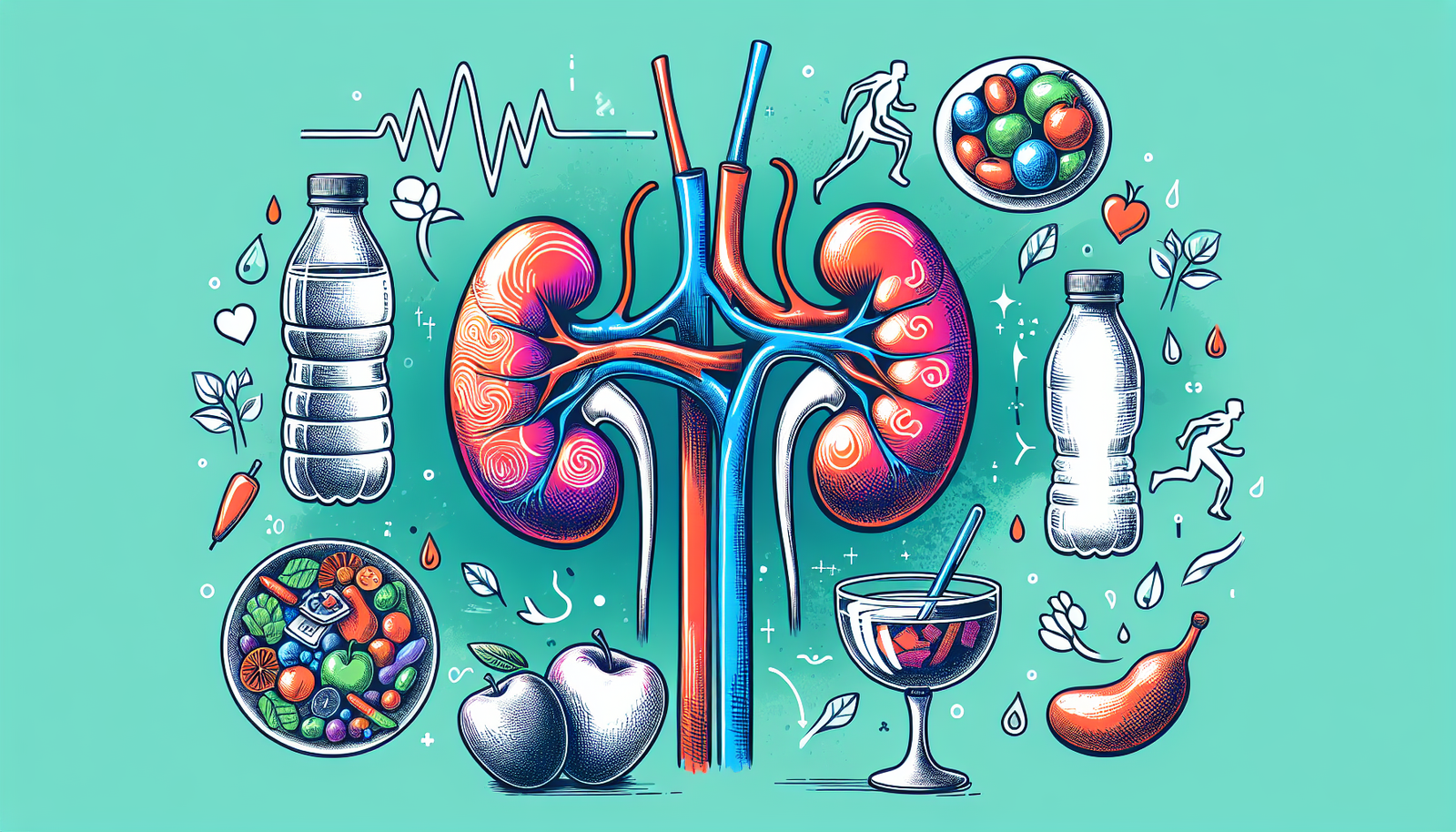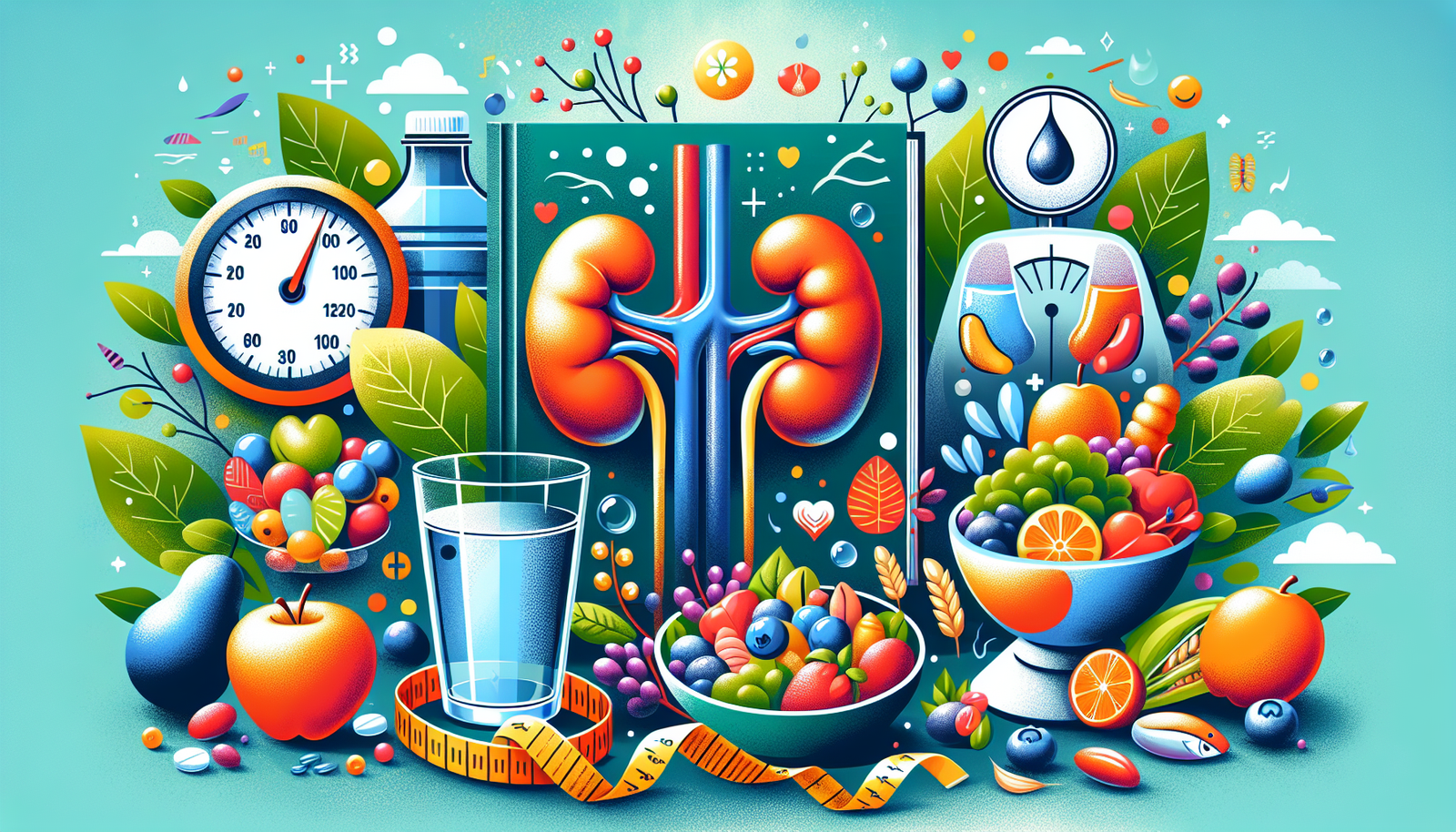Preventing and Reversing Kidney Damage
Imagine waking up one day and discovering that your kidneys, two essential beans-shaped organs in your body, aren’t functioning as they should. They could be hindered by harmful damage, a stealthy monster that creeps up on you when you least expect it. With each passing day, these silent warriors of your body face numerous challenges, threatening your well-being. But don’t let fear set in – this article titled “Preventing and Reversing Kidney Damage” is designed to equip you with the knowledge, preventative measures, and remedies necessary to combat potential kidney damage and restore their health.

Understanding Kidney Damage
Your kidneys play an essential role in your body. They filter waste and excess fluids from your blood while also maintaining the balance of salt and minerals. So when you hear the term ‘kidney damage’, it’s reason for concern. Given the key roles that your kidneys perform in the body, this could lead to serious health consequences.
The Role of the Kidneys in the Body
You can’t discuss kidney damage without understanding the significance of kidneys. These bean-shaped organs are responsible for filtering out waste and toxins, regulating blood pressure, promoting red blood cell production, and maintaining the overall fluid and electrolyte balance in your body. Thus, your kidneys are fundamental to your body’s overall function and health.
Definition of Kidney Damage
Kidney damage means that your kidneys are impaired and can’t perform their function optimally. This damage can be due to various causes – from genetic factors to diseases or even lifestyle choices. If left uncontrolled, kidney damage can progress to chronic kidney disease or kidney failure.
Stages and Forms of Kidney Damage
Kidney damage isn’t a one-size-fits-all condition. It comes in different stages and forms. The National Kidney Foundation distinguishes five stages, with the first stage being the mildest and the fifth stage marking kidney failure. These stages are determined by the kidneys’ Glomerular Filtration Rate, or GFR, which measures how well your kidneys filter waste.
Common Symptoms of Kidney Damage
Recognizing kidney damage can be tricky since early-stage symptoms are subtle and often mimic other conditions. But as kidney damage progresses, you might experience symptoms like fatigue, fluid retention (marked by swelling in your legs, ankles, and feet), decreased urine output, sleep problems, decreased mental sharpness, and persistent itching.
Causes of Kidney Damage
There are numerous causes of kidney damage, with some more widely recognized than others.
Medical Conditions Leading to Kidney Damage
Certain medical conditions can lead to kidney damage. Diabetes and high blood pressure are the two most common culprits, but conditions like kidney stones, kidney infections, and autoimmune diseases can also cause damage over time.
Lifestyle Factors Contributing to Kidney Damage
It may surprise you that your lifestyle choices can affect your kidney health. Poor diet, obesity, and smoking can have adverse effects on your kidneys. Additionally, overuse of medications such as aspirin, ibuprofen, and naproxen, commonly used to manage pain or inflammation, can harm your kidneys if used frequently over long periods.
Genetic Factors
Some forms of kidney disease are caused by genetic mutations. Polycystic kidney disease, for example, is a genetic disorder that causes numerous cysts to grow in the kidneys, leading to kidney damage.
Environmental Toxins
Your kidneys are incredible filters, but constant exposure to some environmental toxins can still lead to kidney damage. Agricultural chemicals, certain metals, and even some medications or illegal drugs can strain the kidneys if exposure is prolonged or intense.
Preventing Kidney Damage
While some causes of kidney damage are out of your control, there are steps you can take to maintain good kidney health.
Healthy Diet for Kidney Health
Your diet can affect the health of your kidneys. Consuming a balanced diet that includes lean proteins, fruits, vegetables, and grains can help keep your kidneys functioning at their best.
Drinking Adequate Water
Staying hydrated is essential for overall health, including your kidneys. Water helps your kidneys flush out toxins and may help prevent kidney stones and urinary tract infections.
Regular Exercise and Maintain a Healthy Weight
Regular physical activity helps maintain a healthy weight, which can lower your risk for kidney damage. Remember to check with your healthcare provider before starting a new exercise routine, particularly if you have existing health conditions.
Avoidance of Alcohol and Smoking
Excessive alcohol consumption and smoking can put stress on your kidneys. Moderation is the key for alcohol, and quitting smoking can improve your overall health – including your kidneys.
Control Blood Sugar and Blood Pressure
Effective management of blood sugar and blood pressure is critical to prevent kidney damage. Regular check-ups will ensure that your levels remain within a healthy range, and if necessary, medication can be used to control these levels.

Medical Screening for Early Detection
Like many medical conditions, early detection of kidney damage can make a significant difference in management and treatment success.
Routine Kidney Function Tests
Routine blood and urine tests can catch kidney damage early. These tests can be part of your routine physical examination or periodic health screening.
Importance of Early Detection
Early detection of kidney damage allows for early intervention, which can slow the progression of kidney disease. If kidney damage is caught early on, it may be possible to repair some damaged portions and minimize any future impact.
Understanding Kidney Function Test Results
Knowing how to interpret kidney function test results can be complicated. Your healthcare provider will guide you through the results, explaining what the numbers mean in relation to your overall health, and what, if any, steps should be taken for treatment.
Treatment for Early Stage Kidney Damage
If you’re diagnosed with early-stage kidney damage, your healthcare provider will likely recommend a mix of medications and lifestyle changes.
Medications to Control Symptoms
Your healthcare provider might prescribe medications to control symptoms and slow the progression of kidney damage. These could include blood pressure medications, cholesterol medicines, or drugs to treat anemia.
Lifestyle Modifications
Alongside medication, lifestyle modifications are crucial in managing kidney damage. These could include dietary changes to reduce the load on your kidneys, exercise to maintain a healthy weight, and stress management techniques.
Medical Procedures and Therapies
In some cases, medical procedures or therapies, such as treatment for kidney stones or infection, might be needed.
Management of Advanced Kidney Damage
If kidney damage progresses to advanced stages, more intensive treatments may be necessary.
Dialysis
Dialysis is a treatment procedure that replicates some of the kidneys’ functions when they can no longer do their jobs. There are two types: hemodialysis and peritoneal dialysis.
Kidney Transplantation
In severe cases, a kidney transplant may be considered. This involves surgically implanting a healthy kidney from a donor into a patient with kidney failure.
Palliative Care
If a transplant isn’t an option and dialysis isn’t effective, palliative care may be suggested to manage symptoms and improve the quality of life.
Reversing Kidney Damage
While kidney damage often isn’t reversible, advancements in medicine suggest that it may be possible in the future.
Potential of Regenerative Medicine
Regenerative medicine carries potential for repairing damaged kidneys. The field is still emerging, and while there’s exciting promise, it’s not currently being used in clinical practice to treat kidney damage.
Kidney Repair and Regeneration Research
There’s an ongoing effort by scientists and medical researchers to study kidney repair and regeneration. While this is still at a research stage, the potential is massive and could completely change the approach towards treating kidney damage.
Living with Kidney Damage
Living with kidney damage requires adjustments in order to maintain the best possible quality of life.
Coping with the Emotional and Physical Impact
Kidney damage can have a profound emotional and physical impact. It’s essential to communicate your thoughts and feelings with a network of supportive people, whether they’re friends, family, or trained professionals.
Support for Patients and Families
Several organizations and support groups can provide information and emotional support for those dealing with kidney damage. They can provide practical advice, shared experiences, and emotional comfort to patients and their families dealing with kidney disease.
Diet and Exercise Modifications
Living with kidney damage often requires diet and exercise modifications, focusing especially on reducing sodium and protein intake and maintaining a moderate exercise routine.
Managing Comorbid Conditions
Often, kidney damage is not an isolated condition. Managing other conditions such as diabetes, hypertension, and heart disease becomes even more critical for those with kidney damage.
The Future of Kidney Health
As we better understand kidney damage, we are better able to help those affected.
Emerging Research in Kidney Health
New research and studies in the field of kidney health can enhance our understanding and potentially lead to better treatment options.
Innovations in Kidney Treatment and Prevention
Medical innovations are continuously offering new insight into kidney damage, treatment, and prevention. We’re finding new ways to slow the disease’s progression, repair damaged kidneys, and even prevent kidney damage from happening in the first place.
Resources for Kidney Health
If you’re seeking help or information related to kidney health, there are several resources available.
Organizations and Support Groups
Various organizations and support groups can offer assistance, advocacy, and information for those whose lives are touched by kidney damage.
Finding and Communicating with a Kidney Specialist
Your healthcare provider can refer you to a kidney specialist, a nephrologist, if necessary. This specialist will provide expert guidance and treatment for your condition.
Educational Materials and Resources
A wealth of educational materials and resources are available for those wanting to understand more about kidney health. These can be a good starting point for anyone looking to learn more about kidney disease, its causes, prevention strategies, and treatment options.

